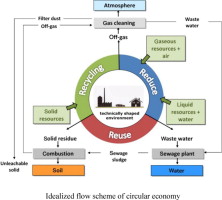- Volumes 84-95 (2024)
-
Volumes 72-83 (2023)
-
Volume 83
Pages 1-258 (December 2023)
-
Volume 82
Pages 1-204 (November 2023)
-
Volume 81
Pages 1-188 (October 2023)
-
Volume 80
Pages 1-202 (September 2023)
-
Volume 79
Pages 1-172 (August 2023)
-
Volume 78
Pages 1-146 (July 2023)
-
Volume 77
Pages 1-152 (June 2023)
-
Volume 76
Pages 1-176 (May 2023)
-
Volume 75
Pages 1-228 (April 2023)
-
Volume 74
Pages 1-200 (March 2023)
-
Volume 73
Pages 1-138 (February 2023)
-
Volume 72
Pages 1-144 (January 2023)
-
Volume 83
-
Volumes 60-71 (2022)
-
Volume 71
Pages 1-108 (December 2022)
-
Volume 70
Pages 1-106 (November 2022)
-
Volume 69
Pages 1-122 (October 2022)
-
Volume 68
Pages 1-124 (September 2022)
-
Volume 67
Pages 1-102 (August 2022)
-
Volume 66
Pages 1-112 (July 2022)
-
Volume 65
Pages 1-138 (June 2022)
-
Volume 64
Pages 1-186 (May 2022)
-
Volume 63
Pages 1-124 (April 2022)
-
Volume 62
Pages 1-104 (March 2022)
-
Volume 61
Pages 1-120 (February 2022)
-
Volume 60
Pages 1-124 (January 2022)
-
Volume 71
- Volumes 54-59 (2021)
- Volumes 48-53 (2020)
- Volumes 42-47 (2019)
- Volumes 36-41 (2018)
- Volumes 30-35 (2017)
- Volumes 24-29 (2016)
- Volumes 18-23 (2015)
- Volumes 12-17 (2014)
- Volume 11 (2013)
- Volume 10 (2012)
- Volume 9 (2011)
- Volume 8 (2010)
- Volume 7 (2009)
- Volume 6 (2008)
- Volume 5 (2007)
- Volume 4 (2006)
- Volume 3 (2005)
- Volume 2 (2004)
- Volume 1 (2003)
► Our environment, industry, mobility, living is governed by complex multi-scale processing laws.
► Application of 3R principle on regional and global levels leads to increased sustainability.
► Global cooperation of all disciplines is key to efficient use of energy, materials and commodities.
Driven by increasing global population and by growing demand for individual wealth, the consumption of energy and raw materials as well as the steadily growing CO2 concentration in atmosphere pose great challenges to process engineering. This complex multi-scale discipline deals with the transformation of mass by energy to manifold products in different industrial fields under economical and ecological sustainable conditions. In growing circular economy, process engineering increasingly plays an important role in recovering valuable components from very diffuse material flows leaving the user stocks following widely variable time periods of use. As well it is engaged in thermal recovery of energy therefrom and in environmentally safe disposal of residual solid wastes whose recovery economically is not feasible. An efficient recovery of materials and energy following the laws of entropy is a must. A complex network of mass, energy, transportation and information flows has to be regarded with growing traded quantities of used goods even on global level. Important constraints in time, however, exist for a necessary realization of innovative new processes and communal mobility and industrial infrastructure on medium and large scale. Based on reasonable long term and highly reliable statistics from industrial organizations representing steel and paper industry, some limits and trends of possible developments in processing of those industries with long recycling experience will be discussed.

